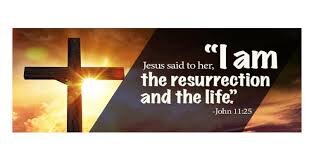“I Myself will search for my sheep…”
/Preacher: Lincon Hardouin
Verses: Ezekiel 34:11-16 & John 10:1-5; 11-15
Preacher: Lincon Hardouin
Verses: Ezekiel 34:11-16 & John 10:1-5; 11-15
Preacher: Maniraj Sukdaven
Verses: John 1:1–18
Preacher: Bryson Arthur
Verses: John 6:1-15; 35–40
Preacher: Gordon Hay
Verses: John 4:1-26 and Romans 12:1-2
Preacher: Gordon Hay
Verses: John 14:1-14 and 1 Thessalonians 4:13-18
Pastoral assistant Lincon Hardouin shares the message with us on Good Friday.
Read MorePastoral assistant Lincon Hardouin shares the message with us on Tenebrae.
Read MoreLay preacher Gordon Hay shares the message with us on the first Sunday of nation-wide lockdown.
Read MorePreacher: Lincon Hardouin
Verses: John 3:1-17

There was a man of the Pharisees named Nicodemus. Undoubtedly, this was no ordinary man, he was not a common member of society, he was not what we would call ‘an average Joe’. I am sure that Nicodemus enjoyed many of the privileges that came with being a high flyer, an influential member within his community, a leader of the Israelite people and not just any leader, but as John tells us, a member of the Jewish ruling council – that is a member of the Sanhedrin. The Sanhedrin was of course an assembly of seventy-one ‘elders’, also known as rabbis or as judges, appointed to sit as a tribunal with the role of acting as a political and judicial council headed by the high priest – in essence, they had the role of a Supreme Court. I would imagine that any single person found to be a member of the Sanhedrin would be well known, powerful, and influential and would be considered to be an all-round ‘good leader’.
In the chapter before this one, Jesus makes a very clear statement, not only to the leaders of His time but also to all the people who had witnessed this statement when He walks into the temple, is disgusted and heartbroken by what He sees, clears it out and then, as John records in 2:16, says, “How dare you turn my Father’s house into a market!” I am certain that Nicodemus had witnessed this, or at the very least, had heard about the actions of Jesus. We also know that Nicodemus was well aware of the miraculous signs and wonders Jesus had performed while in Jerusalem, and so he seeks out Jesus under the cover of darkness, and it is in this moment that Nicodemus’ understanding of faith is challenged far beyond what I think even he, a well-educated, influential and well-respected man, expected.
Preacher: Gordon Hay
Verses: 1 Corinthians 1:1-9 and John 1:29-42

What is the gospel message? Mark Dever has summarised it like this[1]:
God is our holy Creator and righteous Judge;
we have all sinned against Him, offending His holy character, alienating ourselves from Him, and exposing ourselves to His righteous anger;
He has sent Christ to die the death that we deserved for our sins;
that Christ’s death and resurrection is the only way to be reconciled to the one true God;
we must respond to this Good News by repenting of our sins and believing in the Gospel if we would be forgiven by God, reconciled to Him, and saved from the wrath to come.
Last Sunday Lincon preached a powerful sermon on God’s amazing grace, drawing on Ephesians 3. How the mystery of Christ had been revealed by the Spirit and how, in Christ and through faith in him, we may approach God with freedom and confidence. How God’s grace is revealed in the Scriptures.
[1] “So how do we begin positively? For starters, put yourself in the background, and preach Christ crucified. Clarify what the true Gospel; is, what the required response is, and what it means to be a Christian. Make sure people know that God is our holy Creator and righteous Judge; that we have all sinned against Him, offending His holy character, alienating ourselves from Him, and exposing ourselves to His righteous anger; that He has sent Christ to die the death that we deserved for our sins; that Christ’s death and resurrection is the only way to be reconciled to the one true God; and that we must respond to this Good News by repenting of our sins and believing in the Gospel if we would be forgiven by God, reconciled to Him, and saved from the wrath to come. Make sure people know that they must persevere in a lifestyle of repentance and belief, displaying an increasingly loving and holy lifestyle that proves that we are His disciples. (John 15:8; cf. Matt 7:15-23; 1 Thessalonians 3:12-13; 1 John 3:14; 4:8)” Extract from: The Deliberate Church: Mark Dever and Paul Alexander. P44, middle paragraph.
Preacher: Alan Cameron
Verses: John 11:25

The raising of Lazarus from the dead is the climactic miracle of John’s gospel, the last of seven miracles inserted just before the beginning of the final week of Christ’s earthly ministry. Moreover, it contains the fifth of seven ‘I am’ saying of Jesus viz. “I am the resurrection and the life. The one who believes in me will live, even though they die and whoever lives by believing in me will never die” (John 11:26). It also contains the shortest verse in Scripture: “Jesus wept” (v35). As such it highlights both the divinity of Jesus, his power over life and death, as well as his humanity, his ability to grieve in the face of loss.
Jesus was “deeply moved in spirit and troubled” (v34) in the face of death and loss. The word in the original depicts the snorting of a horse at the prospect of battle or staggering under a heavy load. Jesus was familiar with grief as we are, “A man of sorrow and acquainted with grief” (Isa 53:3). As one commentator put it, “He gathered up into his personality, all the misery resulting from sin, represented in a dead man and broken-hearted people round him”.
Preacher: Alan Cameron
Verses: John 10:7

The children’s chorus I sang so many years ago is so appropriate when we consider Jesus’ statement “I am the door of the sheep” (v7)
There’s a way back to God
from the dark paths of sin
There’s a door that is open
And you may come in
At Calvary’s cross is where you begin
When you come as a sinner to Jesus.
Jesus’ great statement is made in the midst of opposition from the pharisees after the Feast of Tabernacles. They took exception to Jesus healing a man born blind. Some scholars argue it was made during the Feast of Dedication (Hanukkah) some three months later, celebrating the re-dedication of the temple by Judas Maccabeus after its desecration by the Greeks. This context suggests that Jesus’ admonition about false shepherds is not directed to the pharisees alone but all false leaders who lead people astray.
Preacher: Alan Cameron
Verses: John 10:11

Of all the ‘I am’ sayings of Jesus, ‘I Am the Good Shepherd’ is perhaps the most loved of all. More often than not we use the word good in an offhand manner – ‘he is a good person’, ‘we had good time’. I’m reminded of the film ‘As Good As It Gets’ when a far from good cranky script writer played by Jack Nicholson pays a long suffering waitress the ultimate compliment, “You make me want to be a better man”.
Unlike English, Greek has two words for good. The first speaks of moral goodness. But as someone has observed, it is possible to be ‘morally repulsive’. Some people are so upright and uptight that others are repelled rather than attracted by their ‘goodness’. The second refers to authenticity – beautiful, winsome, lovely, attractive. Jesus is the Good Shepherd in both senses of the word, not simply a good shepherd, one of many in a similar class, but the good shepherd unique, one and only. Compared to Jesus we who are shepherds in a lesser sense, under shepherds if you will, scarcely seem to be that at all. Who of us could call ourselves a good shepherd, let alone the good shepherd? Yet intuitively we know Jesus to be both and we love him for it.
Preacher: Alan Cameron
Verses: John 8:12

Late September 1991 the fishing boat Andrea Gail sailed from Gloucester, Massachusetts some 600kms into the Atlantic Ocean. A cold front moving down from Canada combined with a large pressure system from the west together with the aftermath of hurricane Grace in the south east created the perfect storm. Ferocious winds and huge waves reduced the boat to matchwood and the six crew members were lost at sea. No doubt there had been prior perfect storms, but this was made famous by the book and film of the same title.
Two thousand years ago Jesus faced his own perfect storm as various pressures from a human perspective converged on Jerusalem of his day. The westerly gale was the new superpower Rome. Julius Caesar had centralized power. After his assassination he was divinised and his successors declared son of God and assumed the role of pontifex maximus (high priest). Augustus Caesar ruled from 31BC to AD14. After his death he too was declared divine and his successor Tiberius took the same titles. The job of the Roman governor in Palestine was to keep the peace, administer justice, collect taxes and supress unrest. This was the westerly gale, the first element in the perfect storm confronting Jesus.
Preacher: Alan Cameron
Verses: John 6:35

Jesus never wrote a book. Yet no other person in history has had more books written about them. The closest we come to biography are the Gospel accounts. Perhaps the closest we come to auto-biography are the seven “I am” statements of Jesus in John’s gospel which raised the ire of the religious leaders. They regarded Jesus committing blasphemy, laying claim to the revelation of God’s great name “I am who I am” given to Moses at the burning bush (Exodus 3:14,15).
Scholars have spent the last five thousand years trying to understand the meaning of “I am who I am” and there is still no consensus. No doubt Moses spent the rest of his life trying to figure out exactly what it meant. By asking God to reveal his name, Moses was seeking to understand the essence of God’s character, his quintessential being. God’s name was more than a name. It represented his very being, his entire character and attributes. The mystery of an eternal, unchangeable God who does not owe his existence to anyone else, eternally present embracing the past and the future is beyond human comprehension.
Preacher: Alan Cameron
Verses: John 7:37-39

Last Saturday thousands of people thronged the streets of Windsor to catch a glimpse of the royal couple Prince Harry and Megan Markle as they rode past in an open carriage. Millions more watched the spectacle on television. Six hundred invited guests attended the wedding in the chapel of St. George.
No less a spectacle was the Feast of Tabernacles some two thousand years ago, where the invitation of Jesus was not restricted to 600 people, but was open to all. Celebrated in the Jewish autumn of September and October, the feast recalled God’s provision for his people during the wilderness wandering prior to entering the Promised Land...
Preacher: Rev. Elsie Armstrong Rhodes
Verses: Isaiah 49:1-7 and John 1:29-42

On the 11th of March we had the privilege to have The Word preached to us by a sister in Christ from the USA, the Rev. Elsie Armstrong Rhodes.
She shared the above sermon with the congregation, providing a beautiful, encouraging and challenging message on faith, trust and the courage to go into the world and shine God's light.
Preacher: Alan Cameron
Verses: Mark 1:1-8

Mark tells us upfront and centre what the gospel is.
It is the story of Jesus; not a mystery story in which we must piece together clues to discover its meaning, not a test of dates and places, not a mere system of thought or speculation. He writes for Roman Gentiles under the direction of Peter. He uses Old Testament quotations sparingly. Remarkably he begins his story with a tapestry of three Old Testament verses from Exodus, Malachi and Isaiah. He reminds us that the gospel is only understandable in light of what God has done in the Old Testament Jesus is not an afterthought of God, plan B as it were as if an earlier plan of salvation had gone awry.
John’s calling is to ‘prepare the way’ for the One to follow. He is identified with Elijah who did not die but was taken to heaven in a chariot of fire (2 Kings 2:11). The expectation was that Elijah would return as a forerunner of God’s kingdom in the final day (Malachi 4:5)...
Preacher: Gordon Hay
Verses: 1 Samuel 3:1-10 and John 1:43-51

I have spent my working life in the practice of law. And much of this has been in litigation. The art of advocacy is to present the facts and the argument in such a way that the Judge will not only hear the words spoken, but will understand them and make a decision based on your argument.
You want the Judge not only to hear you, but also to listen to you.
If our hearing is not impaired, “hearing” is something which happens to us as a natural process when someone speaks.
“Listening” is something we need to do consciously – we need not only to hear, but to take in, consider and respond.
I know that sometimes when I am watching sport and Sue calls me to help in the kitchen I don’t “hear” immediately – meaning I hear but I don’t listen.
I am sure as children there were times when you heard your parents calling you to stop playing and to come in to bath. But did you listen? That was another question!
Preacher: Alan Cameron
Verses: John 1:1-13, Romans 1:16,17

Note: There is no audio for this sermon as our sound desk was in for repairs at the time.
Martin Luther was convinced that faith is the key that opens the human heart to the heart of God. Faith is the key which enables us to understand the great Reformation truth ‘Justification By Faith’ or more precisely ‘Justification by Grace through Faith’. Luther was convinced that we would only understand faith in the light of the character of God and the reality of a battle for the hearts and minds of humanity.
Luther, slowly and painfully, saw that the righteousness of God in Romans 1:17 does not simply refer to his justice requiring judgement, rather a new status granted by grace. In Luther’s world there was a division between spiritual people like monks and nuns and secular people in the market place and everyday world. If you really wanted to be spiritual you took the monk’s cowl or the nun’s habit and devoted yourself to God in a monastery. However, Luther’s ‘monkery’ did not satisfy his soul. As part of the Augustinian order Luther was encouraged by his spiritual director to read the works of Augustine to address some of his doubts and an over sensitive conscience. Augustine spoke of a ‘restless heart’ that would only find rest in God....
Trinity is challenged to be a congregation pointing people to God.
This vision encompasses all people no matter their age or background; it encompasses all we are doing and will be doing in the future, it is on-going and will never be completed.
Sunday Morning: 10:00 - 11:15
459 Lover's Walk, Lynnwood, 0081
Click here to find out about Bible study and fellowship groups
Administrator
Pietro Wentzel
T: 076 369 5295 (9:00 - 13:00)
admin@trinity.org.za
Minister
Rev Graham Fryer
T: 061 355 9500
graham.fryer@gmail.com
Church Banking Details:
Trinity Presbyterian Church Lynnwood
First National Bank
Cheque Account No: 546 0000 9037
Branch Code: 252045
Charisma Banking Details:
Charisma Community Service Drop In Centre
Cheque Account No: 621 419 88206
Branch Code: 252045